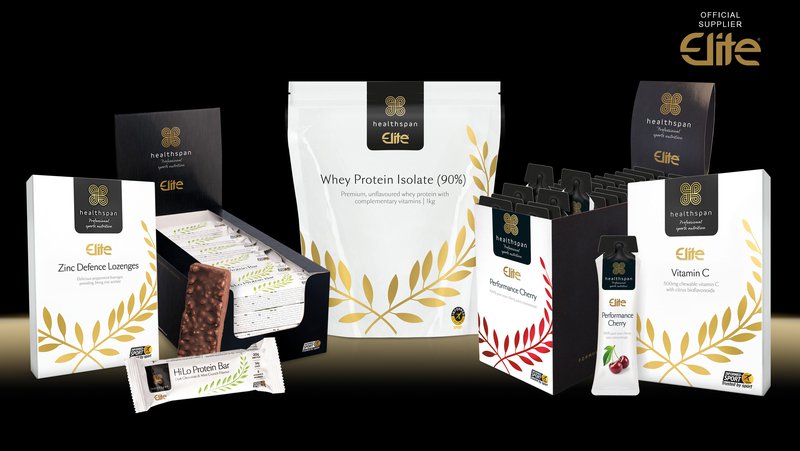Upper Respiratory Tract Infections (URTIs) are infections of the nose and upper airways typically of viral origin. They are a common issue in sport and swimming is no exception.
In fact, our surveillance data indicate that URTIs are the most common injury/illness issue in the world class programme. As a result, we have developed numerous strategies to help reduce the incidence of URTIs and minimise their impact on training load.
There is a large body of evidence highlighting the role and importance of nutrients on immune system function. An athlete’s diet can either stimulate or inhibit selective immune functions or inflammation. Therefore, we have the ability to either positively or negatively influence our immune function through our dietary choices.
Within the Nutrition Department, and together with our vitamins and supplement partner Healthspan, there are 6 key areas of a swimmers day-to-day diet that we look at when considering immune function:
1) Maintain Sufficient Energy Availability
- Immune cells need fuel (glucose, amino acids and fatty acids) to function. If a swimmer is in a negative energy balance (i.e. consuming less calories than they expend) then it is likely that the immune cells will be short of fuel.
- Swimmers should aim to avoid periods of chronic (>4wks) negative energy balance (e.g. if trying to lose weight).
- If weight loss is required then this should be strategically timed and for as short a period as possible with a controlled level of deficit and macronutrient profile.
2) Maintain Sufficient Carbohydrate Availability
- Carbohydrate is a critical fuel source not just for high-intensity exercise but also for our immune cells. Reduced carbohydrate availability not only compromises exercise intensity and duration but will also reduce the function of our immune system making it more vulnerable to infection.
- Swimmers should minimise chronic periods of carbohydrate restriction and avoid high intensity and/or prolonged exercise in a low-carbohydrate availability state.
- During high intensity and/or prolonged exercise carbohydrates should be consumed at a rate of up to 60g/hr.
3) Meet Daily Protein Requirements
- Insufficient protein intakes can affect many aspects of immune function but typically athletes intakes tend to be in a range where this is not an issue.
- However, frequency of protein intake throughout the day is important and swimmers should aim for 5-6 protein-rich meals or snacks per day. If you are struggling to get enough protein in your diet, Healthspan have a high quality range of protein supplements that you can include in your diet:
- Whey Protein Isolate (90%)
- Whey Protein Concentrate
- Vegan Protein Complete
- HiLo Protein Bars
- 40 Winks Protein
4) Include Omega-3
Fatty Acids
- Omega-3 fats are considered essential fats because our body cannot make them itself, we need to consume them in our diet. They are important in the control of the inflammatory response we experience after exercise.
- Swimmers should look to incorporate omega-3 rich foods (e.g. oily fish, flaxseed, walnuts) into their diet at least 3 times per week. You may also want to consider a daily supplement, such as High Strength Omega 3, or Veg-Omega 3
- Omega-3 fats may be even more important during periods of novel training modes or return to training from rest or injury. There is evidence that they can reduce losses in muscle mass during inactivity and can enhance the rate of muscle growth upon return to training.
5) Minimise Dehydration
- Dehydration can cause a decrease in saliva flow rate and our saliva is a really important defender against infection.
- So it’s important to maintain suitably hydrated before, during and after exercise. This is especially important when the exercise environment changes. Swimmers are often great at bringing water bottles to pool sessions but what about land training or maintaining fluid intake in the evening out with training?
- Hydration status can be easily monitored through changes in body weight (before and after exercise) and urine colour (a darker colour indicates dehydration).
- You could also consider Activ Hydrate, which is a delicious flavoured citrus drink that provides all the essential electrolytes we need.
6) Eat a Wide-Ranging Diet
- Immune cells require a wide variety of nutrients to function optimally. Vitamins and minerals play key roles in allowing the immune cells to fight infections and deficiencies can compromise their function.
- Vitamins A, D, E, B6, B12 and the minerals Zinc, Iron, Magnesium and Selenium all have critical roles but fortunately these can all be consumed in suitable amounts from a varied diet containing plenty of plant-based foods.
- In general, we advise swimmers to aim for 7+ servings of fruit and vegetables per day and to focus the majority of their diet on plant-based foods. This will go a long way to ensuring that the correct variety and amount of micronutrients required are consumed.
- But, a multivitamin supplement can also act as a nutritional ‘safety net’ when your diet is compromised by busy schedules and high training loads.
Whilst specific nutrients can’t “boost” immune function, it is clear that a well-planned diet focussed on avoiding under nutrition can reduce the frequency and severity of URTIs.
Healthspan Elite is the Official Vitamin and Supplement supplier of British Swimming. Chosen and trusted by professional athletes and teams across the globe, the Healthspan Elite range stands for uncompromising quality, competition safe and cutting edge formulations. Developed with leading sports nutritionists and batch tested under the Informed Sport programme for WADA banned substances, Healthspan Elite provides complete peace of mind for those looking for an extra edge to their performance. Save 20% on all products when quoting code 'HSWIM20' at www.healthspanelite.co.uk

